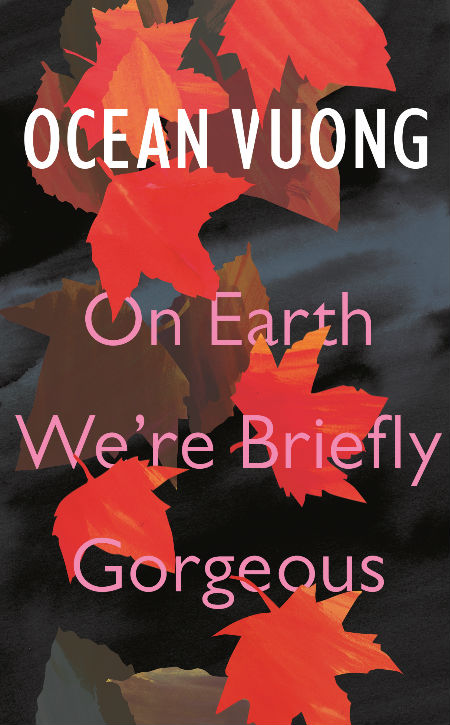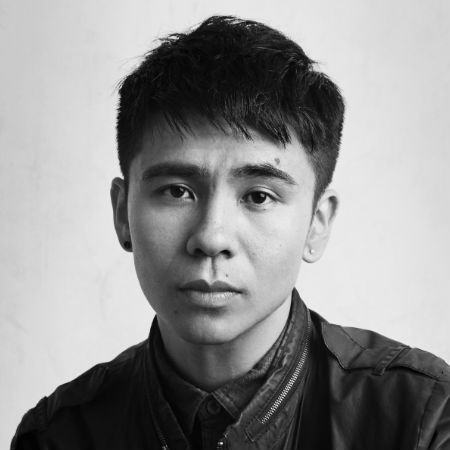
On Earth We’re Briefly Gorgeous by Ocean Vuong is a rare and special thing.
A book that is so exquisitely and gorgeously well-written, that possesses such a richly-poetic and tender soul that you gasp again and again as you read its transcendantly beautiful writing and yet, which feels deeply emotionally accessable in a way that books as works of art rarely do.
Ocean Vuong has managed what few other authors do – he has created a work of literary beauty that dazzles like a rare and precious gem without surrounding one gram of the humanity that he has poured into his first novel in what feel like quantities inexhaustible.
Time and time again you will marvel at word placement so perfect and exact that you find it impossible to imagine any other word standing in its place and at the same time, you will feel a surge of recognition that here is life raw and gritty, real and unvarnished, the sort of life we all live every day, shorn of the usual platitudes and Instagram gloss we attempt to apply, often unsuccessfully, to make it look palatable to ourselves and everyone around us.
A poet with three published collections to his collection, Ocean Vuong has crafted a book that sneaks up on you, that reads like the most velvet-coated of creations with the harshest but real truths contained about the human condition revealed within.
“Sometimes, I imagine the monarchs fleeing not winter but the napalm clouds of your childhodo in Vietnam. I imagine them flying from the blazed blasts unscathed, their tint black-and-red wings jittering like debris that kept blowing, for thousands of miles across the sky, so that, looking up, you can no longer fathom the explosion they came from, only a family of butterflies floating in clean, cool air, their wings finally, after so many conflagrations, fireproof.
‘That’s so good to know, baby.’ You stared off, stone-faced, over my shoulder, the dress held to your chest. ‘That’s so good.’
You’re a mother, Ma. You’re also a monster. But so am I—which is why I can’t turn from you. Which is why I have taken god’s loneliest creation and put you inside it.
Look.” (P. 14)
Drawing from his own childhood growing up as the teased and bullied only child of Vietnamese immigrants to the US, he writes with blistering candour and yet surprising tenderness and affection about a life lived between two cultures, riven by his mother’s PTSD which manifested as physical abuse and the insistent tug of his nascent homosexuality.
His is a story that looms large, beginning in the geographic and emotional tangle of the Vietnam War and studded by time in refugee camps, with abusive fathers and an impoverished upbringing which also possesses a surprising intimacy as he deep dives into the very fabric of his family past and present and explores how that can affect you in ways you don’t see even see at the time.
Writing to his mum in adulthood, Vuong now has the perspective that time affords you, able to articulate and set in place a great many things that he had some inkling about as a child but as is the way with children who are still learning what life means let alone the language to describe it, and to fill his mother in on the many things that went unsaid between them growing up.
It wasn’t simply that there wasn’t a full appreciation of what was happening at the time; even if he had the words, and up until the age of 8 or so, his English vocabulary was limited though growing steadily, having those conversations with a mother who had undergone so much trauma that her only response to stress and difficulty was lash out, even though she loved him deeply, was all but impossible.
Hence On Earth We’re Briefly Gorgeous, itself a luminously beautiful title that sends your spirit just reading it, is a framing of his growing up in ways that he and his mother never really addressed, the sharing of insights and information, of those things we don’t our parents because we are unwilling or unable to, in the hope that some understanding will come of it.

Written in way that happily crosses from past to present and all point in-between in a non-chronological way that preferences the effect of thoughts, feelings and memories over exhaustively cataloguing them in strict order, On Earth We’re Briefly Gorgeous doesn’t shy away from examining incidents in excruciating detail.
Perhaps it is too detailed an examination at times but the truth is his life had so much going on from dealing with his mother’s PTSD to fending off the bullies and falling in love with the grandson of the tobacco farmer that employed him, that you can excuse Vuong from bringing up everything from a particular moment in his life.
His life was packed solidly in a way few are, and while there are happy memories of his mother and his grandmother and his American GI “grandfather” Paul – who was, in Vuong’s beautiful turn of phrase, given that title and the love that goes with it because of his actions and not blood connections (which weren’t there anyway) – and times of true tenderness and love from Trevor who didn’t want to grow up to be a “fag” but was happy to explore it as a teenager, there was also a great deal of trauma.
Vuong is unafraid to tackle these threads of sadness and trauma, coming at them in such a way that you know he has thought and felt long and deeply about them, describing them with a frankness of someone who has, if not made his peace with them, as least accepted there is no getting away from them.
Or leaving them alone, moldering and unexplored.
“You asked me what it’s like to be a writer and I’m giving you a mess, I know. But it’s a mess, Ma—I’m not making this up. I made it down. That’s what writing is, after all the nonsense, getting down so low the world offers a merciful new angle, a larger vision made of small things, the lint suddenly a huge sheet of fog exactly the size of your eyeball. And you look through it and see the thick steam in the all-night bathhouse in Flushing, where someone reached out to me once, traced the trapped flute of my collarbone. I never saw that man’s face, only the gold-rimmed glasses floating in the fog. And then the feeling, the velvet heat of it, everywhere inside of me.” (P. 189)
Perhaps that is why he has framed his utterly unique first novel as a letter to his mother – he wants her, in some way at least, to understand what her past did to his then-present and future, not in some vengeful, resentful manner but simply with the mindset of someone who simply wants some shared understanding to result, and who acknowledges that, like her, he is both gorgeous and monstrous.
Or perhaps Vuong simply wants to ruminate on what it means to inhabit that limbo between childhood and adulthood where everything possible and is yet to be ruined, dulled or constrained.
His early-to-mid teenage years were a quintessential period of gorgeousness in that respect as he explored with Trevor what it means to be him, who he was away from his mother and yet who he very much was with her.
His mother Rose and grandmother Lan weren’t afforded that same period of near-adult flowering, their youthful years dealt a savage and lastingly damaged blow by war and everything that flowed from this.
Aware that his good fortune of a sort is the result of their lack of it, something he also addressed in his first poetry collection Night Sky with Exit Wounds – “An American soldier fucked a Vietnamese farmgirl. Thus my mother exists. Thus I exist. Thus no bombs = no family = no me. / Yikes.” – On Earth We’re Briefly Gorgeous candidly and heartachingly is a brave undertaking, revealing not only the pain but the joy and what resulted from it.
Life being life there is no clean and easy finish to either the book or Vuong’s ruminations but this much is clear – we are all shaped by the various events and influences of our youth, and we either make our peace with it, or least accommodate it somehow, or we don’t and suffer, in some sense, the degradation that results.
You get the feeling that Vuong has made both accommodation and peace with his past, even imperfectly – after all, who of us can have such pure perspective on our life’s course that that is even possible? – and that this beautiful, gorgeous, moving, heart scouring book is his way of saying that this much I understand, mother and I hope you will, at least in some way, come to understand too.